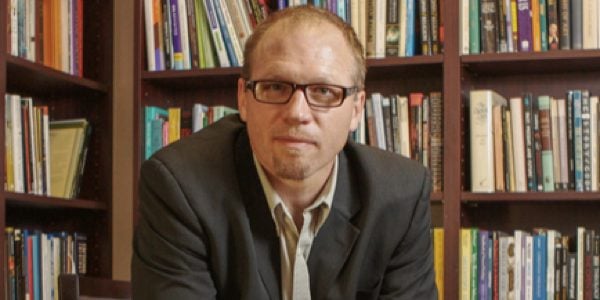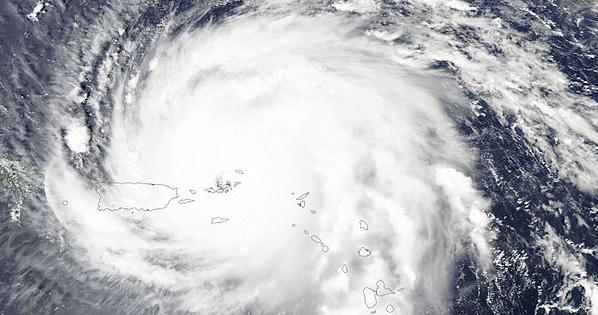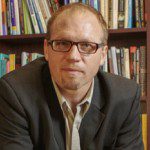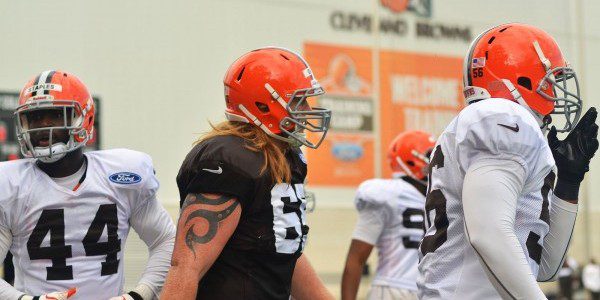Can God do anything and everything God wants to do?

Think about it for more than a few seconds, and it’s easy (for most people, probably) to conclude, “No, of course not.” God can’t change the principle of mathematics (making 10+10=30, for example), God can’t do logically contradictory things (such as making “bachelor” mean “married man,” or even better: making “The Bachelor” a television show replete with existential meaning).
But can God intervene in the world, prevent evil and suffering, perform miracles whenever s/he wants, and coerce creatures to obey God and be good to each other?
If so–if God can intervene at will–why doesn’t God doesn’t do more to prevent evil and suffering? Why doesn’t God cure cancer, prevent terrorist attacks, war, and rape, heal every sickness and disease (or at least my sickness or disease)?
Perhaps the answer is very simple and straightforward: Because God can’t.
At least, this is the provocative thesis of Thomas J. Oord, in his recent book The Uncontrolling Love of God: An Open and Relational Account of Providence. Oord, one of the more well-known, American evangelical theologians writing today, has written this theological account of his view of divine providence in the face of the question of the problem of evil. Oord refers to himself as an “open and relational theist”; this book is an excellent and sophisticated introduction to an open and relational view of God’s providence.
For Oord, God is “essentially kenotic.” Kenosis is the Greek term for “self-emptying,” or making oneself vulnerable. The theological use of the term hearkens back to Philippians 2, which says that Jesus, though he was in the form of God, “emptied himself” of his divine prerogative and took on the form of a human being, accepting the limitations that involved.
Many Christian theologians affirm divine kenosis, at some level: God embraces vulnerability and accepts certain limitations. The incarnation is the great instance of divine self-limitation, in the person of Jesus, the God-man. But Oord sees this kenosis as essential, meaning that limitation and vulnerability is metaphysically necessary in God’s nature. For Oord, divine vulnerability and limitation, vis a vis creation (other agents) is a necessary consequence of God’s primary nature as love.
God’s love, or that God is love, means that God will always and only act and interact from within the constraints of love. God never does what is unloving; there is no attribute or characteristic in God that would ever trump God’s love or set love aside as a parenthesis, in order to accomplish something else or act from some other concern.
Oord defines his view succinctly:
The model of God as essentially kenotic says God’s eternal nature is uncontrolling love. Because of love, God necessarily provides freedom/agency to creatures, and God works by empowering and inspiring creation toward well-being. God also necessarily upholds the regularities of the universe because those regularities derive from God’s eternal nature of love. Randomness in the world and creaturely free will are genuine, and God is not a dictator mysteriously pulling the strings. God never controls others. But God sometimes acts miraculously, in noncoersive ways. God providentially guides and calls all creation toward love and beauty (p. 24).
What of the problem of evil and suffering?
The problem of evil and suffering has typically been framed around three primary, common claims of theism: (1) God is good. (2) God is powerful (3) Evil and suffering exists. But, if God is really good, and really powerful (which usually means omni-powerful and omni-knowing–omniscience being an entailment of omnipotence), don’t we end up with a contradiction? If God is really good, he would want to prevent evil and suffering. If God is really powerful, he would be able to prevent evil and suffering. So why doesn’t he? This is how the “problem of evil” has been framed, since as early as the Greek philosopher Epicurus.
In response to this problem, some theologians have fiddled with one or the other of these three claims. Some rethink “goodness” (many Calvinists have taken this tact). Others fiddle with the meaning of “evil” (thus, Augustine’s view that evil is merely a “privation of good,” simply a lack of the positive. And others reframe God’s power. Arminian theologians typically have taken this latter approach, and Oord does too–but to a more radical extent than both classical Arminians and many open theists–placing Oord’s approach in the process theism camp.
For Oord, God’s power must be understood relative to that which is possible. God’s love is not to be trifled with (it is the fundamental, essential characteristic of God’s nature), but God’s power is determined by God’s love. Love, for Oord, is logically prior to power in God’s nature. It’s not just that God refuses to intervene in the natural and human world to prevent evil, but that God cannot intervene in a coercive way. If God could do so, God would not be relational and the future would not be genuinely open–and God would not be love.
Oord rightly points out that his view is one step removed from another model of free-will and free-process theology, which also affirms divine kenosis (“God’s self-limitation”) but which takes that limitation to be the result of God’s free choice. On this view, God chooses not to intervene in creation and in history (at least, most of the time) because to do so would be to break the laws of nature and to interfere with human free will.
God’s respects and preserves the freedom of created agents and entities by not regularly (if ever) intervening. Freedom of will and freedom of natural processes enable genuine relationship between God and creation. God is not a cosmic dictator or micro-manager, but respects the autonomy of creation. But this means that suffering and evil continue to exist in the world, so long as God continues to refuse to intervene and to prevent it from happening.
The difference between these two models (Oord’s Essential Kenosis and Divine Self-Limitation) comes down to this:
- God can’t intervene/coerce to prevent evil and suffering (Essential Kenosis)
- God won’t intervene/coerce to prevent evil and suffering (Divine Self-Limitation)
And Now for the Question of Miracles
Oord is a sophisticated theologian who incorporates an extensive awareness of science in his theology. The shift from Newtonian physics to Einsteinian physics and more recently to quantum physics has meant that the natural world, at the most basic level, appears to be (on one reading of the quantum world) fundamentally open and indeterminant. Oord’s “open and relational theism” aligns well with contemporary science. God’s action and agency works within and alongside the regularity and randomness of the natural world. For Oord, God’s love “generates the regularities of existence” in the first place. There is no “intervention” on top of or outside of that world–because God co-exists that world.
Oord’s view of providence does allow for miracles as occasional “special actions” of God. He rightly rejects the typical definition of a miracle as “violation of laws of nature.” Can anyone really know what constitutes a violation of a “law of nature,” particularly when a “law” is really just a way of denoting what regularly happens? And as Oord points out, can anyone really know everything pertaining to a law of nature so as to determine when and how a law is being violated? Instead of “law of nature,” Oord prefers the phrase “lawlike regularities”).
For Oord, God’s providence is not the exertion of a will or being from outside creation, acting upon submissive or dependent agents or entities; rather it is God’s loving action from within the natural world. Yet, God can act in such a way that miracles can and do occur, as God’s love works alongside or along with the receptivity, agreement, and agency of created entities, including both inanimate (rocks, water, etc.) and animate entities (living cells, human beings, etc.). Oord’s principle of essential kenosis means that whenever and however God acts in effecting miracles, that action will never be coercive and it will always be loving. It will always be toward some good end.
Oord’s definition of a miracle is (1) an unusual event; (2) a good event; (3) involving God’s special action in relation to creation. So a miracle is what happens when God acts in a special way, in a way that is unusual (not according to our observed “lawlike regularities”), and in way that is good and loving. But miracles always also involve creaturely consent and non-coercion.
I wonder, though, how Oord can accept the miracles recorded in the Bible and at the same time claim that God’s action is never coercive?
Oord acknowledges that we can’t always read everything in the Bible literally/historically (and that we should apply some critical readings of the text), but he uses the crossing of the Red Sea as an example of a miracle we could accept. Oord urges that we do not have to accept either a completely naturalistic explanation (God had no causal impact) or a strongly supernatural one (God over-rode the laws of nature). A third option, the “essential kenosis” approach allows that God,
uses spontaneous or random events at various levels of existence, from the quantum level to those much more complex, when acting miraculously…God uses creaturely randomness and spontaneity when acting specially to provide novel forms and ways of existing…
In this miraculous activity, God’s steadfast love does not supersede the lawlike regularities of nature, and God does not control. But God coordinates creaturely elements in ways that bring about unexpected and good results. This coordination is possible because of God’s omnipresence and complete knowledge of what has occurred and is occurring (209).
God may have used the wind to stir up the shallow waters enough that the Israelites could pass through the marshy sea bed. But love always trumps God’s power, and if God is truly not coercive and always acts for the good, what about those poor Egyptians who drowned in the sea when God apparently ceased specially acting on the winds and waters (or at the quantum level, or whatever)?
It seems difficult to avoid that this a miracle that’s good for the Israelites, but not so much for the Egyptians–and particularly for the Egyptians who are simply following orders. Do their deaths qualify as unjust or at least an unloving act of God toward them? Or another way of asking the question is: When death occurs as a consequence of God’s special action in creation, does that qualify as coercion? In any case, to say this was a miracle for the Israelites, but merely a natural tragedy for the Egyptians, certainly strains against the original presentation of the story.
Earlier I mentioned Oord’s point that completely knowing and understanding the ins and outs of “laws of nature” is a lofty and unattainable goal. But surely the same holds for understanding the ins and outs of God’s providential agency in the world. Can we really say, unequivocally, that the fundamental nature of God as love (a proposition I find easy to accept) means that God will never and would never coerce a person or a created entity, for an end that God desires to achieve?
The Uncontrolling Love of God is a fascinating book and one which deserves a close reading and deep reflection. No doubt many will find it not just illuminating but personally and spiritually helpful for their own engagement with the problem of evil and suffering in the world–and in their own lives. It offers a serious and bold answer to the question, “Why, God?”
But if I may let my own theology kick in here at the end, I think we are in a much better position to hope for God’ to overcome evil and injustice in the world if we believe that God can and will someday interfere, intervene, and even coerce creation–and humanity–to align itself with God’s will. This is our best–if not only–hope for the kingdom of God to finally arrive in full.











